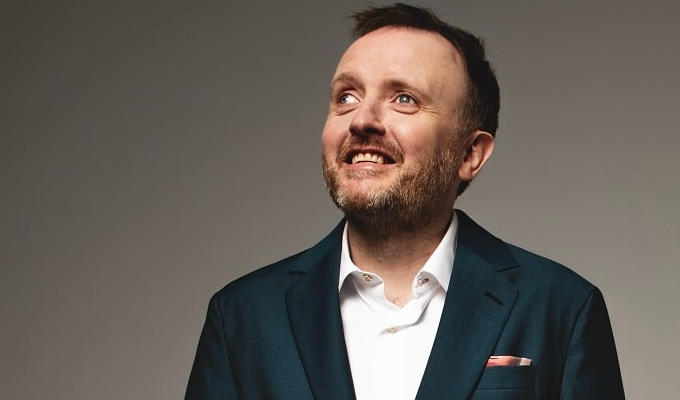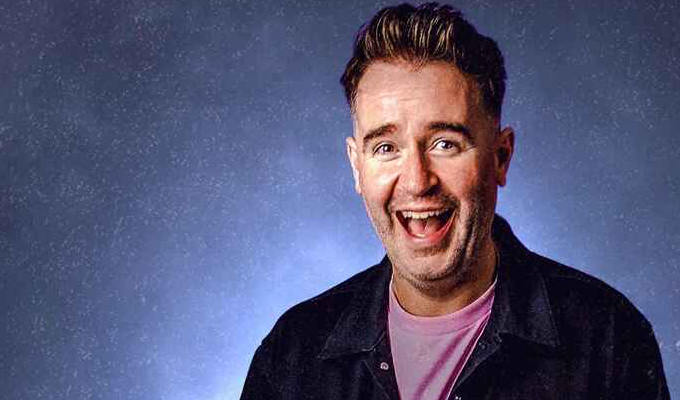Clubbed to death
In a new series of monthly columns, Chortle editor Steve Bennett looks at the crisis in comedy clubs
Stand-up is said to be enjoying a boom - with more people than ever flocking to big gigs in arenas and major theatres, and comedians rarely off our TV screens. And with the UK recession officially over, surely business can only get even better.
Yet at the grassroots level, there are signs that not all is well. Big clubs are cutting back on the number of shows they do, or using desperate promotional deals to get people through the doors. Smaller venues are feeling the squeeze even harder, especially those who don’t own the venue they operate in.
Later this month, a group of comedy club promoters will get together in London to discuss the crisis in their business. So why is the club scene in such straits?
The best-case scenario is probably dilution. That audiences are still strong, but spread out over a far wider number of nights. Not only do new back-of-a-pub clubs keep springing up in major cities, but thanks to low-margin operators such as Mirth Control, almost every small town - almost every small village - has a semi-regular comedy night now.
Stand-up is not a form of live entertainment most people go to often, so if their local pub is offering something once a month, that's probably quite enough for them, combined with the occasional visit to the big shows.
Quality, though, is a different issue. How many of these nights offer a top-notch line-up each time? Very few, especially when measured against the sort of comedians potential punters can see every night for free on their TV, thanks to rerun channels such as Dave. And there are a lot of unexceptional comics on the circuit... and more generic open mic-ers flooding in, thinking comedy’s a quick route to fame, won’t help.
If punters have a mediocre night at a comedy club, they are unlikely to come back, even to a different one. But the comparison with TV acts raises another major issue. People now have their favourite comics from the box in a way they never used to, when most of today’s biggest comedy clubs were opened.
Panel shows are re-run so often, that those who regularly appear on them can have a fame that it would, in the past, have been near impossible to achieve. Even a couple of occasional appearances makes some impact in the public consciousness; enough for comics to be able to tour smallish venues under their own name, and so start building up their own fan base, rather than depending upon the unreliable income of club bookings.
That leaves the clubs presenting largely unknown names. Being good on a panel show is not the same as being good in a club, and there are plenty of excellent acts who only play the circuit. But why would a casual-goer take a punt on four unknowns at their local club, when that bloke who’s at least been on Mock The Week is on at the arts centre next month?
But this is not just bad news for the venues, it’s bad news for all of comedy. No one is an oven-ready comedian, and the club circuit is a vital nursery, where every comic talent is honed and perfected, night after night, in front of audiences who would be more critical than existing fans. Already, very few big clubs offer genuine open mic slots as a stepping stone to paid gigs, and they are inundated because of the vast number of wanna be comics.
There’s a theory that comedy thrives when times are tough as people need cheering up. They are also watching their wallets, too, and a night at a comedy club is a lot cheaper than a night at the theatre. However it’s still more of a risk than a TV name in the casual punters’ mind – and still not as cheap as a night in.
But how much should a comedy gig cost?
There’s certainly a downward pressure on ticket prices for all the reasons given above. Discount website Groupon has offers for a night at Jongleurs with comedy, a burger and pint for £10... thus valuing a line-up of four long-term professional comics at about £2.50.
If that offer - a sign of the desperate measures clubs need to take - gives potential punters a yardstick, no wonder they are reluctant to pay more.
There are also more free gigs than before, which some club owners blame for their woes. Free shows might be an increasing force for change at the Edinburgh Fringe, but on the circuit these tend to be new material or new act nights that are upfront about what they are offering. The deal seems fair – it might be shit, so don’t risk your hard-earned – and are unlikely to have a real mass-audience appeal, so the effect on paid nights is probably small.
Yet other venues seem intent on squeezing the punter. Nights of unexciting, relatively inexperienced comics costing £10, even £15, are not uncommon.
At London's Monkey Business, whose promoter Martin Besserman is behind this month's 'crisis meeting', it costs £7.50 on the door for the tonight’s weekly new act night, full of amateurs. I’m sure that’s not the only example, but it’s little surprise if that is struggling for punters. Throw in a couple of drinks each, and your night out to see amateur comics is around £30. For the same price a couple could get six months of unlimited Hollywood movies at home, which seems like the better deal for a hard-up family?
Home entertainment is, of course, another threat to live comedy. That and other distractions that never used to be an issue, from XBox to Twitter. Not that being in an audience seems any barrier to the latter, given the increasing number of semi-engaged audience members who’d rather be pecking away at their phones than actually be in the moment of a gig. But that’s another issue...
Some – though by no means all – the clubs struggling with a downturn might also want to look at their own nights while complaining about external factors. How many small venues have well-lit stages, and decent PA systems. Does the promoter act as MC even if (s)he kills the atmosphere between acts? Is the venue welcoming, or a shoddily put-together back room. How is the club finding and keeping customers? Even big clubs have their faults. At the lovely Bath Komedia last week, just two barmen struggled to serve a full venue; how many sales were lost while people queued?
Well-run clubs with a passion for comedy - the Stands and their like - are not immune to declining figures, but they seem less hard-hit than others. There's certainly a lesson to be learned there.
But maybe even those venues are merely managing decline. If the best-case scenario is that club audience are merely diluted, the worst is that comedy clubs are simply no longer relevant. That they are going the way of the music hall.
After all, comedy clubs grew up in a time when few comedians had their own fan bases, and punters would have to trust their local venue to serve up the best on the circuit.
In the modern world, when you can research any artist, does a club of four random acts put together on a promoters' seem like an outdated model? After all you never go out for a night of 'music', you find a band you like, or at least in a genre you like, and see them. To go out blindly to a night of 'comedy' seems strange. And are the clubs serving up the best of the circuit any more, or just making the best of a pool of comics who’ll ‘do’.
Perhaps a better future model is the heavily themed nights, where ,
depending on your inclination, you can go and see a selection of weird alternative acts; a line-up of bookish nerds celebrating curiosity; a night of puns; or even a bawdy night designed for the hens, stags and office parties. Horses for courses..
Earlier this week, the Alternative Comedy Memorial Society – a line-up of off-the-wall, not famous, comedians doing new material – attracted 150+ people on a Tuesday night, each paying £12.50. That seems in ruder health than many well-established four-acts-and-a-compere comedy nights.
Another option might be to go down the American route; since they had their boom and bust two decades ago, forcing a shake up of their oversaturated market. Now most large regional US clubs are run on the basis of a relatively celebrated headliner who can pull the crowds and be the focus of all publicity, supported by a strict hierarchy of opening and middle acts chosen by the venue.
Perhaps clubs should accommodate more of those semi-famous acts on their first or sophomore national tours – even at weekends and not just on graveyard midweek slots – give them a deal similar to what they could get from performing a solo show and sell the night around them, A supporting bill of lesser-known acts can provide the variety, and keep alive the proving grounds of the British circuit that is the pride of the comedy world.
That’s one suggestion. But there’s unlikely to be one ‘magic bullet’ solution, because there’s not one circuit any more.
The industry, at grassroots level, is in a state of flux and the key to survival will be as it’s always been, putting on a good show, building a strong relationship with the audience, being inventive and ceaseless in your marketing, and having the perseverance of Sisyphus.
Easy, huh?
Published: 1 Nov 2012






